Few sectors are as exposed to political influence as agriculture. Farmers are familiar with the extent to which the profitability of their business is at the mercy of political decisions that can quickly have an impact on farm practices, commodity prices and/or price competitiveness within global markets.
We have seen the temporary highs and lows that this creates within sectors but in most cases markets readjust to reflect the new supply and demand balance. However, the year ahead will be different. In 2019, we will see British and EU politicians make decisions relating to Brexit that will shape the future of agriculture on the island of Ireland for generations to come.
When the outcome of the UK referendum was known in June 2016, the Irish Farmers Journal identified a no-deal Brexit as potentially more damaging to Irish agriculture than WTO, Mercosur and TTIP trade deals combined. Just about every assessment that has been carried out since confirms this.
We have moved beyond the need for mere reassurances from the Government with farmers now requiring firm commitments. Given what is at stake, Ireland must not find itself going to Brussels hoping for the best at the end of March
Despite over 30 months of intensive negotiations, the only area that all sides would agree on is that a no-deal Brexit is more likely now than when negotiations commenced.
It is difficult to overstate the economic devastation that such an outcome would have – not only on Irish agriculture but on towns and villages throughout rural Ireland.
A no-deal Brexit would see the UK default to trading under World Trade Organisation (WTO) rules and with this the need to impose import tariffs. In this scenario, given our dependence on the UK market and our export profile, Ireland, accounting for less than 1% of the EU population, would be exposed to almost 20% of all tariffs imposed on EU exports to the UK. As Phelim O’Neill reported last week, Ireland would carry a larger share of tariffs than 20 other EU member states combined.
Some cast doubt on the likelihood of WTO tariffs being imposed in a no-deal scenario – largely due to the impact that such a move would have on food prices within the UK. However, the alternative is equally less palatable for farmers on either side of the border: to throw the doors of the UK open to all imports, tariff-free – a move which would decimate the value of the UK market for both British and Irish farmers.
In the absence of immediate support from the EU – or in the case of farmers in Northern Ireland, from the British government – a no-deal Brexit would decimate agriculture. Beef markets would collapse across Ireland and the EU. It would be the final nail in the coffin for our already struggling suckler sector, which simply could not function in an environment where 100% tariffs were being imposed on some beef products going to the UK or in a market undermined with cheap imports from South America.
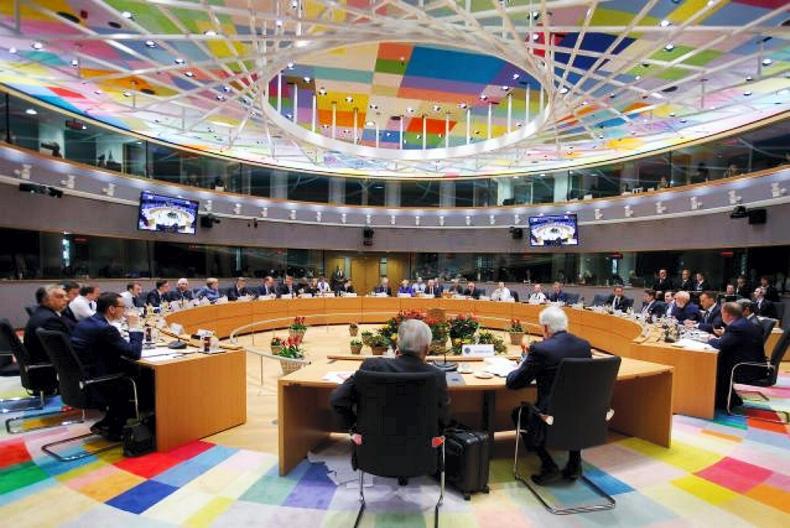
EU heads of state meeting in Brussels to approve the Brexit withdrawal agreement.
Meanwhile, future growth in the dairy sector would certainly be halted – if not derailed – and the mushroom, pigment and vegetable sectors would all face major challenges.
The Irish Government’s own analysis indicated that in a WTO tariff situation, we would see a 23% reduction in beef output over the next decade, with processed food and dairy output contracting by 21% and 18% respectively. The effect would be felt far outside the farm gate, with a proportionate drop forecast in employment across each sector equating to tens of thousands of job losses. The rural landscape would change dramatically with a wide range of businesses feeling the full impact.
Time for sugar-coating is over
While stark, the time for sugar-coating the message around Brexit is over. In 2018, it was possible for British politicians to keep kicking the can down the road. We are now at a stage where the road is running out and decisions have to be made.
Such are the deep divisions that exist within the main UK political parties, this will be a highly volatile process. It is one where economic reality could easily be trampled by a dangerous mixture of sentiment and lack of leadership.
As a result, while still hoping for the best, no one can rule out the possibility of the UK crashing out of the EU in less than 90 days. We have heard positive reassurances from the Government that rural Ireland will not be forgotten by the rest of Europe in such a scenario. But we have moved beyond the need for mere reassurances with farmers now requiring firm commitments. Given what is at stake, Ireland must not find itself going to Brussels hoping for the best at the end of March.
To date, the response of Irish agriculture and rural Ireland has largely been to support Government efforts to find a diplomatic solution. It is a strategy that has broadly worked to date. But ultimately Ireland is now merely a bystander in a political process that will have a major impact on its economic future and that of its largest indigenous sector: agriculture.
As we watch a chain of events that could bring the sector to the brink of collapse, we need to intensify efforts to ensure an appropriate safety net is immediately put in place.
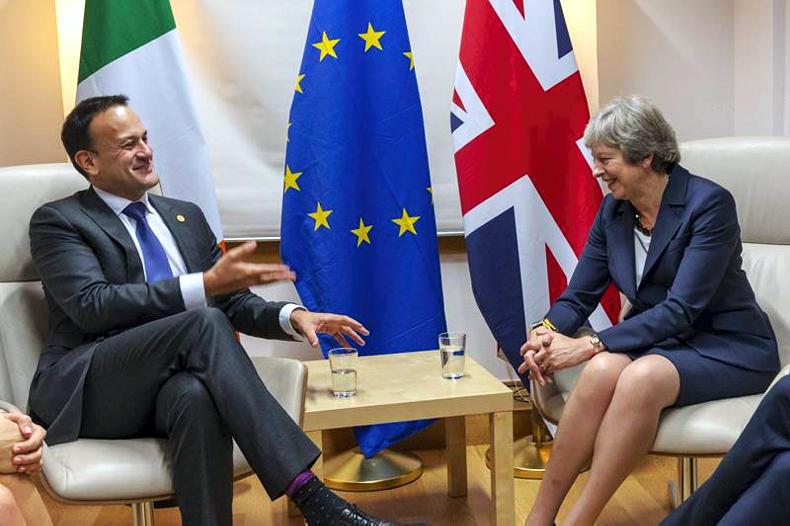
An Taoiseach Leo Varadkar with UK prime minister Theresa May meeting in Brussels.
The industry has just weeks left to put the interests of Irish farmers and rural Ireland at the top of the national and EU Brexit agenda. It is clearly time for farm organisations, agribusinesses and all those who depend on farmers for their incomes to unite with one voice on what is the biggest issues to face the sector and rural Ireland in over a generation. The necessary political pressure needs to be applied that sees the Government immediately launch one of the greatest diplomatic efforts ever mounted in the EU to secure a commitment that all necessary tools and market support measures will be implemented to protect farm incomes, whatever the outcome of Brexit. The success of this effort will ultimately shape Irish agriculture for future generations of farmers.
We have seen how putting feet on the street has proved successful in the past at bringing challenges facing the sector to the top of the political agenda. Has the time not come for Irish agriculture and rural Ireland to make its voice both heard and seen on what is such a critical issue?
Few sectors are as exposed to political influence as agriculture. Farmers are familiar with the extent to which the profitability of their business is at the mercy of political decisions that can quickly have an impact on farm practices, commodity prices and/or price competitiveness within global markets.
We have seen the temporary highs and lows that this creates within sectors but in most cases markets readjust to reflect the new supply and demand balance. However, the year ahead will be different. In 2019, we will see British and EU politicians make decisions relating to Brexit that will shape the future of agriculture on the island of Ireland for generations to come.
When the outcome of the UK referendum was known in June 2016, the Irish Farmers Journal identified a no-deal Brexit as potentially more damaging to Irish agriculture than WTO, Mercosur and TTIP trade deals combined. Just about every assessment that has been carried out since confirms this.
We have moved beyond the need for mere reassurances from the Government with farmers now requiring firm commitments. Given what is at stake, Ireland must not find itself going to Brussels hoping for the best at the end of March
Despite over 30 months of intensive negotiations, the only area that all sides would agree on is that a no-deal Brexit is more likely now than when negotiations commenced.
It is difficult to overstate the economic devastation that such an outcome would have – not only on Irish agriculture but on towns and villages throughout rural Ireland.
A no-deal Brexit would see the UK default to trading under World Trade Organisation (WTO) rules and with this the need to impose import tariffs. In this scenario, given our dependence on the UK market and our export profile, Ireland, accounting for less than 1% of the EU population, would be exposed to almost 20% of all tariffs imposed on EU exports to the UK. As Phelim O’Neill reported last week, Ireland would carry a larger share of tariffs than 20 other EU member states combined.
Some cast doubt on the likelihood of WTO tariffs being imposed in a no-deal scenario – largely due to the impact that such a move would have on food prices within the UK. However, the alternative is equally less palatable for farmers on either side of the border: to throw the doors of the UK open to all imports, tariff-free – a move which would decimate the value of the UK market for both British and Irish farmers.
In the absence of immediate support from the EU – or in the case of farmers in Northern Ireland, from the British government – a no-deal Brexit would decimate agriculture. Beef markets would collapse across Ireland and the EU. It would be the final nail in the coffin for our already struggling suckler sector, which simply could not function in an environment where 100% tariffs were being imposed on some beef products going to the UK or in a market undermined with cheap imports from South America.

EU heads of state meeting in Brussels to approve the Brexit withdrawal agreement.
Meanwhile, future growth in the dairy sector would certainly be halted – if not derailed – and the mushroom, pigment and vegetable sectors would all face major challenges.
The Irish Government’s own analysis indicated that in a WTO tariff situation, we would see a 23% reduction in beef output over the next decade, with processed food and dairy output contracting by 21% and 18% respectively. The effect would be felt far outside the farm gate, with a proportionate drop forecast in employment across each sector equating to tens of thousands of job losses. The rural landscape would change dramatically with a wide range of businesses feeling the full impact.
Time for sugar-coating is over
While stark, the time for sugar-coating the message around Brexit is over. In 2018, it was possible for British politicians to keep kicking the can down the road. We are now at a stage where the road is running out and decisions have to be made.
Such are the deep divisions that exist within the main UK political parties, this will be a highly volatile process. It is one where economic reality could easily be trampled by a dangerous mixture of sentiment and lack of leadership.
As a result, while still hoping for the best, no one can rule out the possibility of the UK crashing out of the EU in less than 90 days. We have heard positive reassurances from the Government that rural Ireland will not be forgotten by the rest of Europe in such a scenario. But we have moved beyond the need for mere reassurances with farmers now requiring firm commitments. Given what is at stake, Ireland must not find itself going to Brussels hoping for the best at the end of March.
To date, the response of Irish agriculture and rural Ireland has largely been to support Government efforts to find a diplomatic solution. It is a strategy that has broadly worked to date. But ultimately Ireland is now merely a bystander in a political process that will have a major impact on its economic future and that of its largest indigenous sector: agriculture.
As we watch a chain of events that could bring the sector to the brink of collapse, we need to intensify efforts to ensure an appropriate safety net is immediately put in place.

An Taoiseach Leo Varadkar with UK prime minister Theresa May meeting in Brussels.
The industry has just weeks left to put the interests of Irish farmers and rural Ireland at the top of the national and EU Brexit agenda. It is clearly time for farm organisations, agribusinesses and all those who depend on farmers for their incomes to unite with one voice on what is the biggest issues to face the sector and rural Ireland in over a generation. The necessary political pressure needs to be applied that sees the Government immediately launch one of the greatest diplomatic efforts ever mounted in the EU to secure a commitment that all necessary tools and market support measures will be implemented to protect farm incomes, whatever the outcome of Brexit. The success of this effort will ultimately shape Irish agriculture for future generations of farmers.
We have seen how putting feet on the street has proved successful in the past at bringing challenges facing the sector to the top of the political agenda. Has the time not come for Irish agriculture and rural Ireland to make its voice both heard and seen on what is such a critical issue?





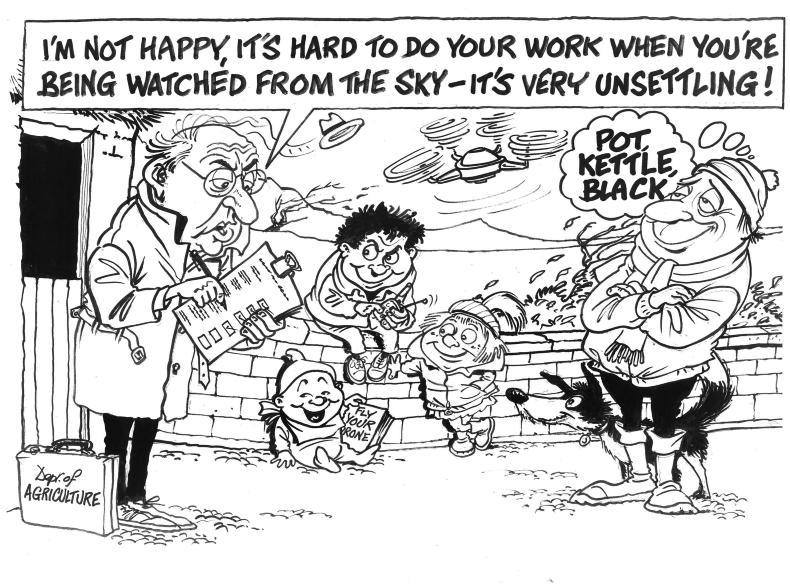



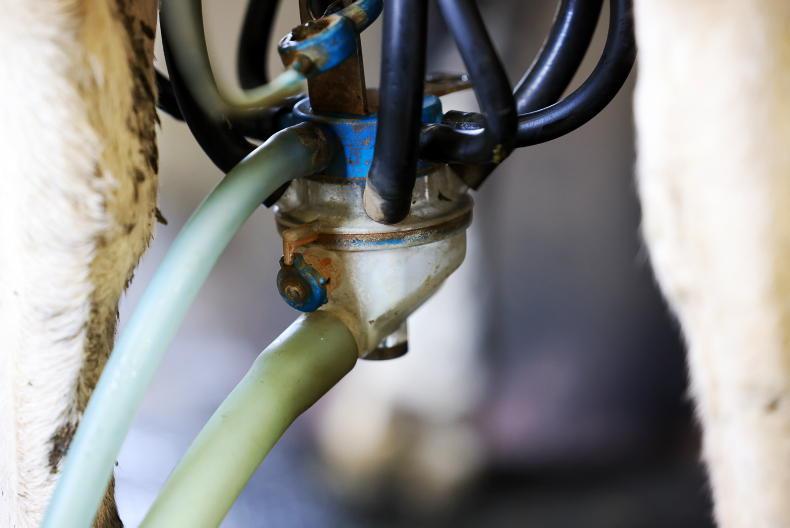
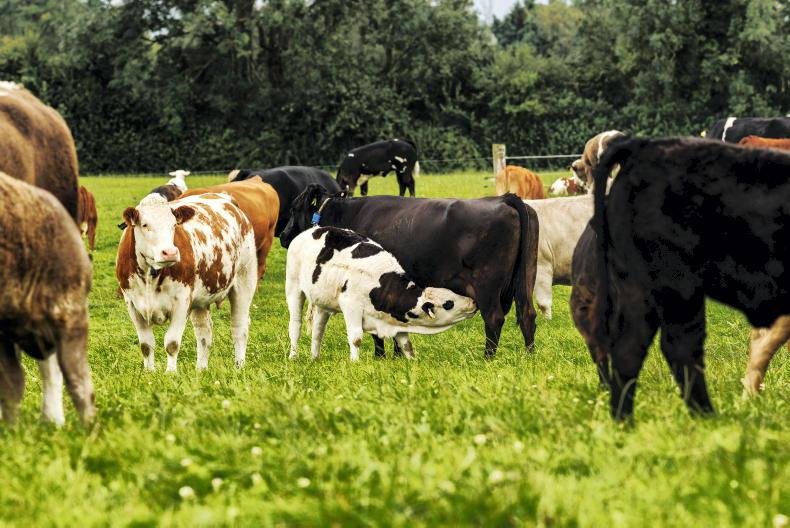
SHARING OPTIONS